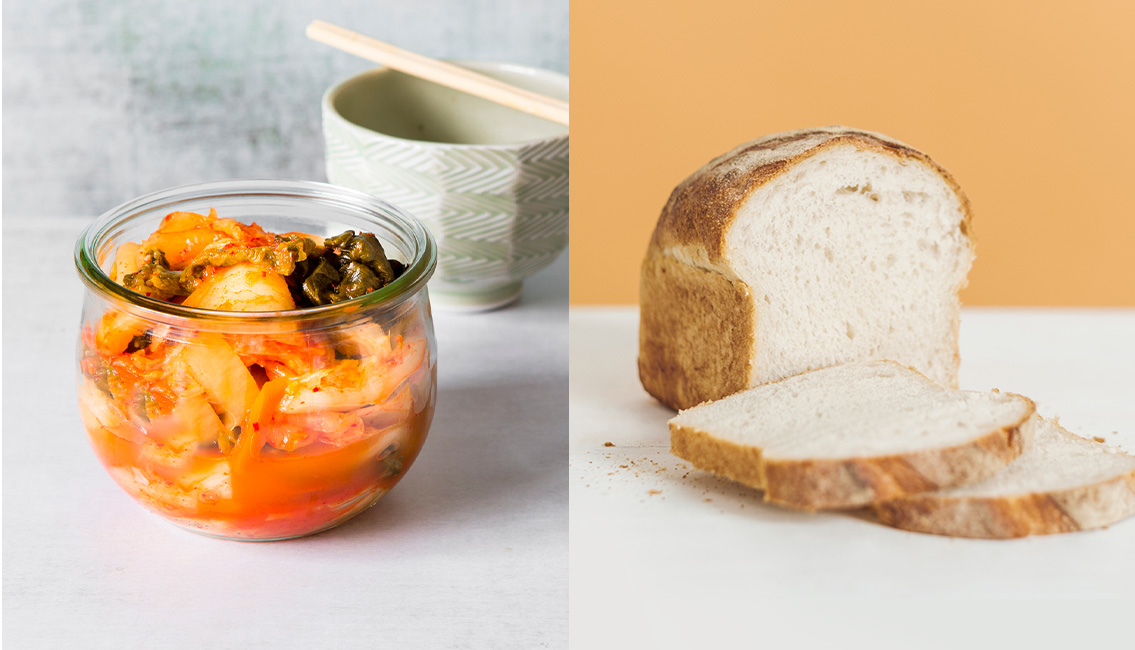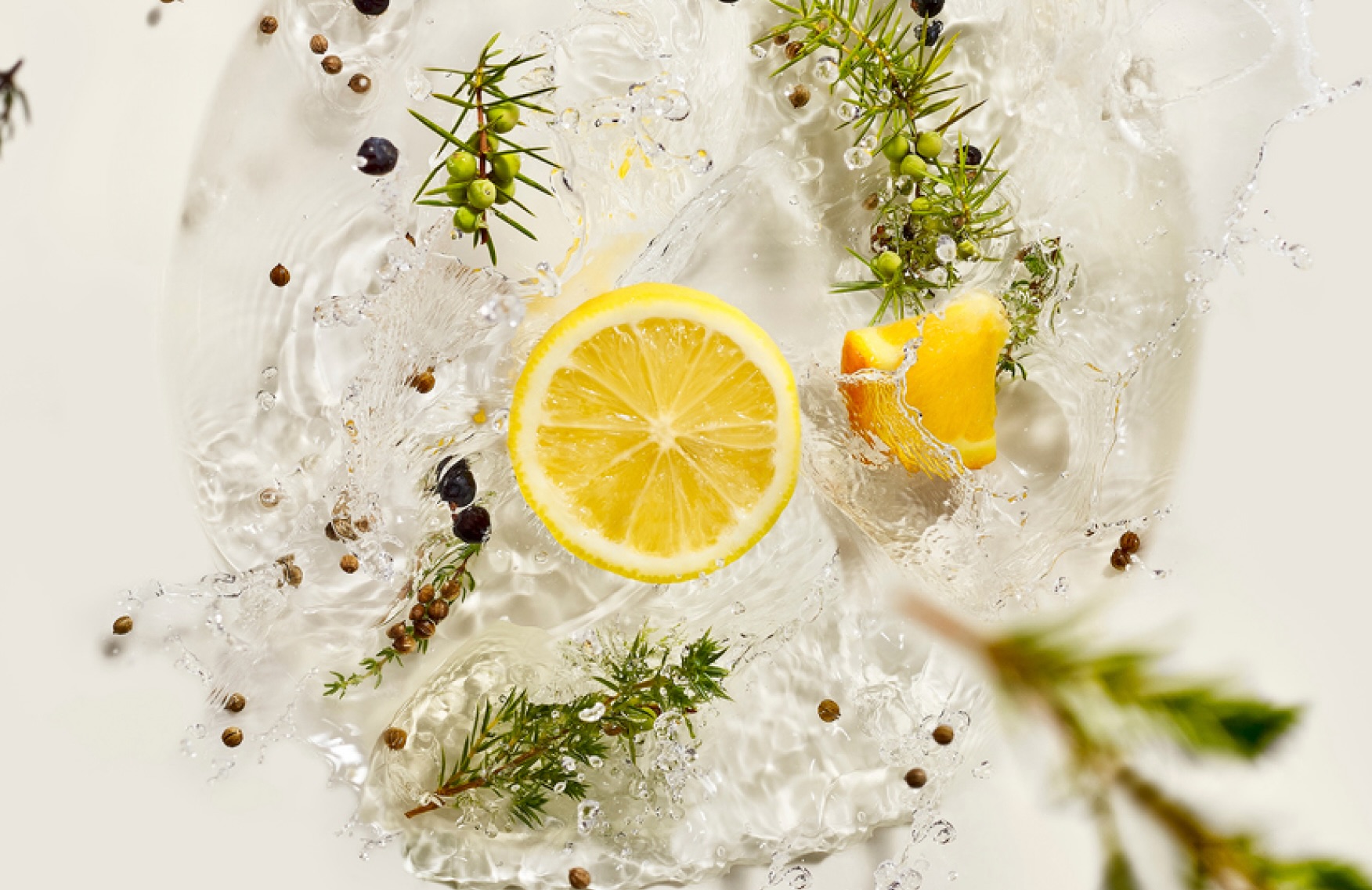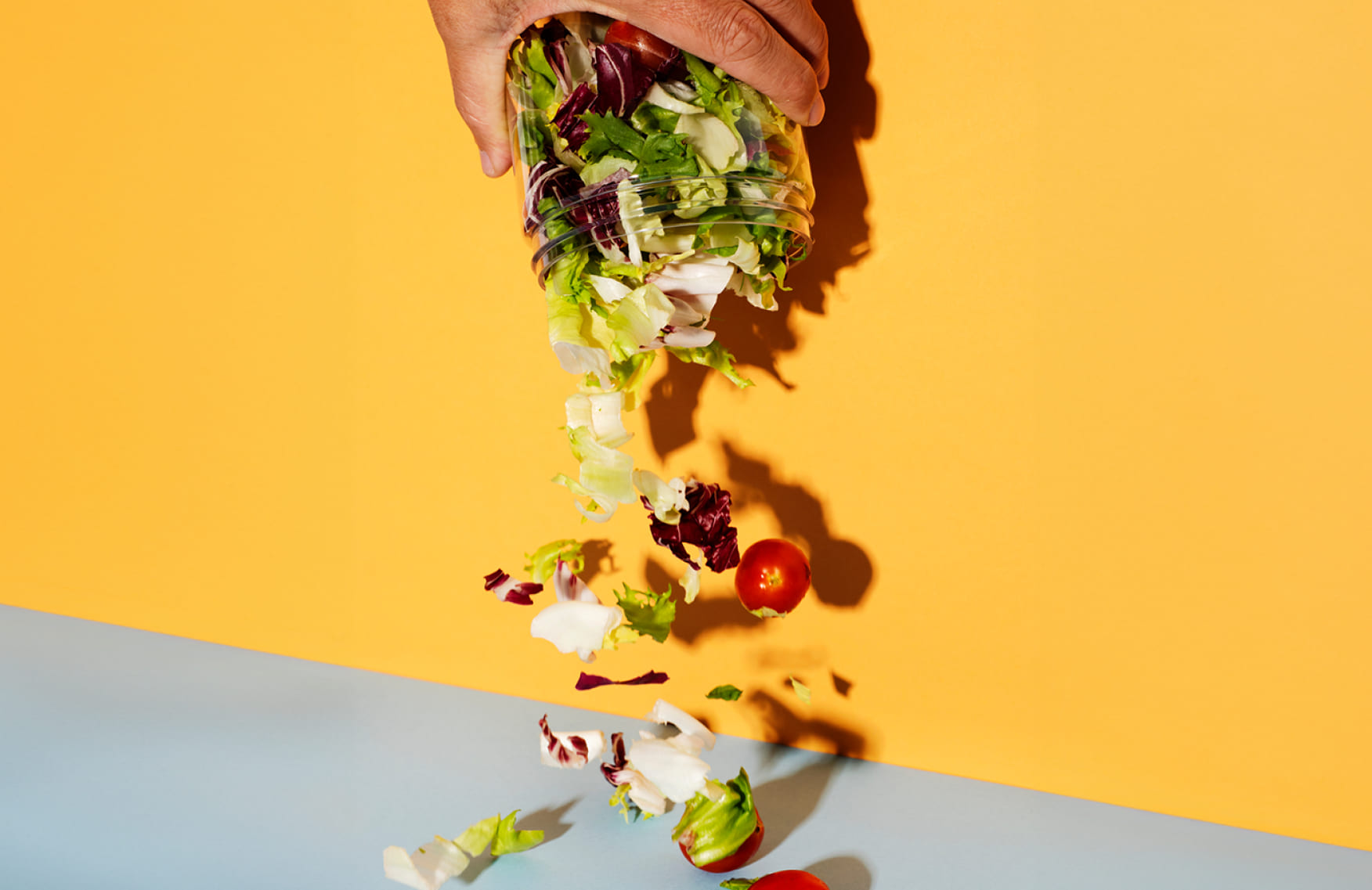What do sourdough and kimchi have in common? Check out the latest buzzy topic in the biotics world: postbiotics

Somewhere in the span of a decade, bacteria in the form of biotics have gone from tummy-trouble trigger to holy grail of gut health. What we sought to kill completely with a well-known medicinal pink drink is now a glorified healthy gut guru with its own aisle at the grocery store.
If you think you’ve unearthed all the biotics for better health, just wait. Here, Miranda Hammer, MS, RD, CDN and creator of crunchyradish.com (@thecrunchyradish), explains all the health benefits of postbiotics—plus easy ways to incorporate them into your everyday diet.
But first, a quick gut check.
Biotics make up your gut’s microbiome, a delicately balanced habitat for trillions of microscopic organisms. Your microbiome supports everything from digestion to immunity and is as unique as your fingerprint. Your genes shape it, but what you eat influences it, and a diverse diet of prebiotics, probiotics and postbiotics keep your gut balanced for overall better health.
Biotics 101.
What’s the difference between all the biotics? Here’s how it all breaks down.
Prebiotics are a unique type of fiber that the body needs but can’t digest. But much like fertilizer to a plant, “prebiotics are the food that probiotics eat,” says Hammer. Some prebiotics that support digestive health include bananas, garlic, asparagus and oats.
Probiotics are “the live bacteria found naturally in the gut that can help create a positive and balanced microbiome,” says Hammer. Many fermented foods naturally contain probiotics. Foods that register the highest probiotics are yogurt, sourdough bread, kimchi and sauerkraut.
Postbiotics are the end game to the biotic life cycle. Simply put, postbiotics are the healthy, good-for-you bacteria that probiotics excrete. So, when you eat probiotic foods like kimchi and sauerkraut, your gut produces postbiotics as it’s being digested.
Your body (and brain) on postbiotics.
While research is in the early stages, benefits of postbiotics to whole-person health look promising. Postbiotics “have anti-inflammatory properties, blood-pressure lowering properties, help treat IBS and have potential antimicrobial properties,” says Hammer.
Another reason to start adding postbiotics into your daily routine? They can also work as a natural antidepressant. “The gut microbiome produces the neurotransmitters dopamine, serotonin and norepinephrine that impact mental health,” says Hammer. These substances are essential to everything from feeling more alert and sleeping better to managing social anxiety and depression.
Eat Your Way to Better Gut Health.
Try these simple food swaps to incorporate probiotics into your everyday diet.
- Instead of white bread, go for sourdough
- Instead of cabbage in stir fry, mix it up with kimchi
- Instead of lettuce on a sandwich, use sauerkraut or other fermented/pickled vegetables
- Instead of a cocktail, try kombucha
- Instead of hot tea, have a cup of warm miso soup
- Instead of nut milk in a smoothie, add kefir
- Instead of mayo in salad dressing, use yogurt
What about supplements? “Eating a range of fermented foods is my first choice so you can get a variety of microorganisms,” says Hammer. “Plus, postbiotics aren’t live like prebiotics—they don’t have storage requirements and have a longer shelf life. But if you’re immune compromised, unable to access probiotic-rich fermented foods or are simply not fond of the taste of them, a supplement can be a good alternative.”


